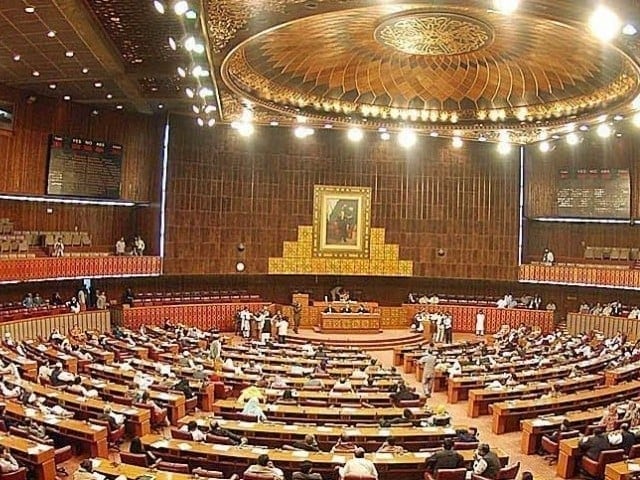ISLAMABAD – After the Senate, the National Assembly also approved the Election Act Amendment Bill and the Peaceful Assembly and Public Order Bill for Islamabad by a majority vote on Friday.
The National Assembly session was held under the chairmanship of Speaker Ayaz Sadiq. During the session, Minister for Parliamentary Affairs Azam Nazeer Tarar presented the Election Act Amendment Bill 2024 for approval.
After a vote was conducted by the Speaker, the bill was passed by a majority. The bill had already been approved by the Senate earlier.
A motion was also presented in the National Assembly regarding the introduction of a supplementary agenda. Barrister Daniyal Chaudhry of the Pakistan Muslim League (N) presented the motion, which was approved.
“Peaceful Assembly and Public Order Bill 2024” Passed for Islamabad
PML-N member Daniyal Chaudhry presented the “Peaceful Assembly and Public Order Bill 2024” in the house as part of the supplementary agenda for approval. The bill faced strong opposition from PTI and Sunni Ittehad Council, but it was passed by a majority vote. Members of Sunni Ittehad Council and PTI protested and chanted “No, No.”
This bill was also approved by the Senate the previous day. Now that both houses have passed the bills, they will be sent to the President for approval, after which they will become law upon his signature.
Under this bill, the Deputy Commissioner will grant permission for assemblies in Islamabad. If the Deputy Commissioner denies permission, an appeal can be made to the Chief Commissioner. Any decision made by the Chief Commissioner can be reviewed by the Secretary of the Interior. The government will designate specific areas like Sangjani or any other area, and an official gazette notification will be issued for this.
For any assembly or gathering in Islamabad, an application must be submitted to the District Magistrate (Deputy Commissioner) at least seven days in advance. A coordinator of the assembly or gathering will provide a written request, detailing the location, the number of participants, the time, and the purpose of the gathering. The District Magistrate will have the authority to impose a ban on the assembly.
The coordinator of the assembly will submit a written request to the District Magistrate seven days before the event. If valid reasons for the assembly are not provided, the District Magistrate may deny permission and will give written reasons for doing so.
Before granting permission, the District Magistrate will assess the law and order situation and obtain security clearance from law enforcement agencies. The assembly will only be allowed in designated areas.
The District Magistrate (Deputy Commissioner) can amend the permission based on national security risks, potential violence, or concerns regarding the deterioration of law and order. The government can declare specific areas in Islamabad as Red Zones or High-Security Zones.
The District Magistrate will have the authority to ban an assembly if it poses a risk to public safety, national security, or if there is a verified report of disturbance to law and order or daily activities. Written reasons for the ban will be provided, and the affected party can appeal within fifteen days.
The District Magistrate can instruct the officer in charge of the police station to disperse the assembly if it disturbs law and order. If the assembly is not dispersed, the police officer can use force to disperse it.
The bill states that members of illegal assemblies can be arrested and detained. Members of such assemblies may face a sentence of up to three years and a fine. Upon a repeat offense, a person sentenced to three years could face up to ten years in prison.
Meanwhile, PTI member Jamshed Dasti pointed out the lack of quorum, after which the National Assembly session was adjourned until 5 PM on Monday.









